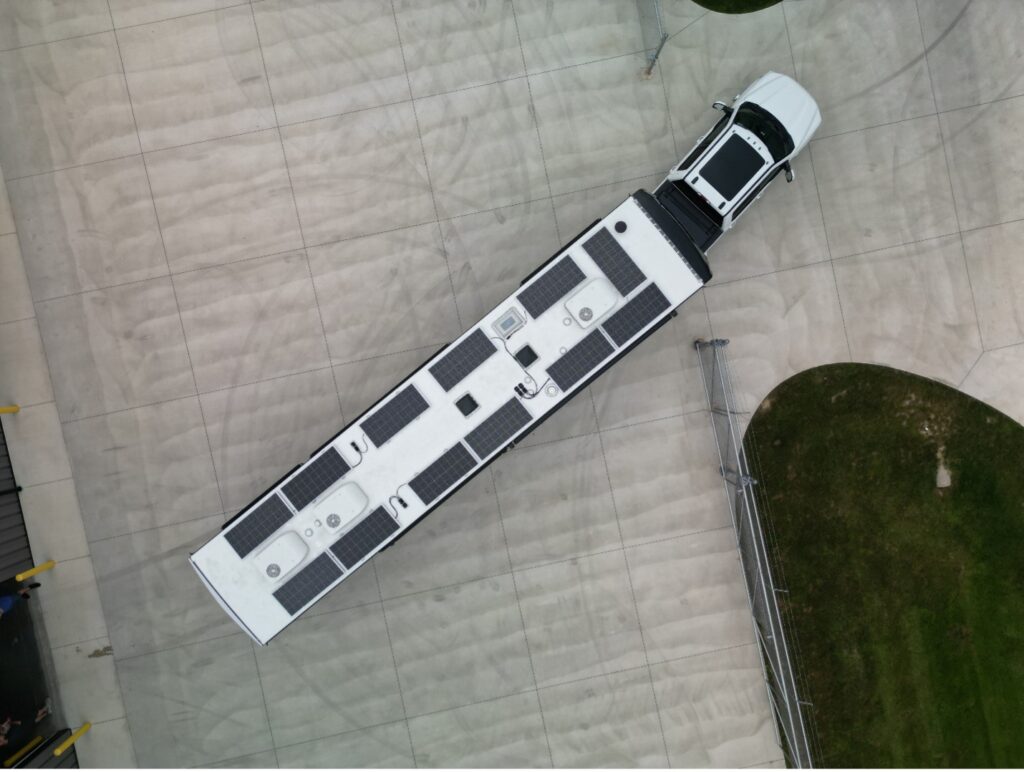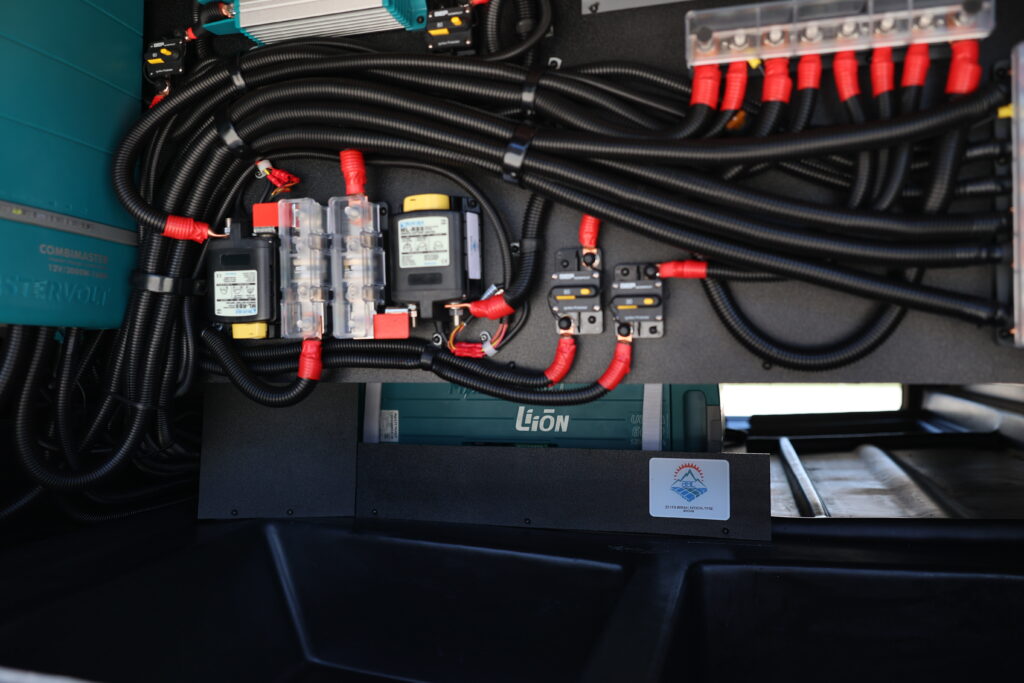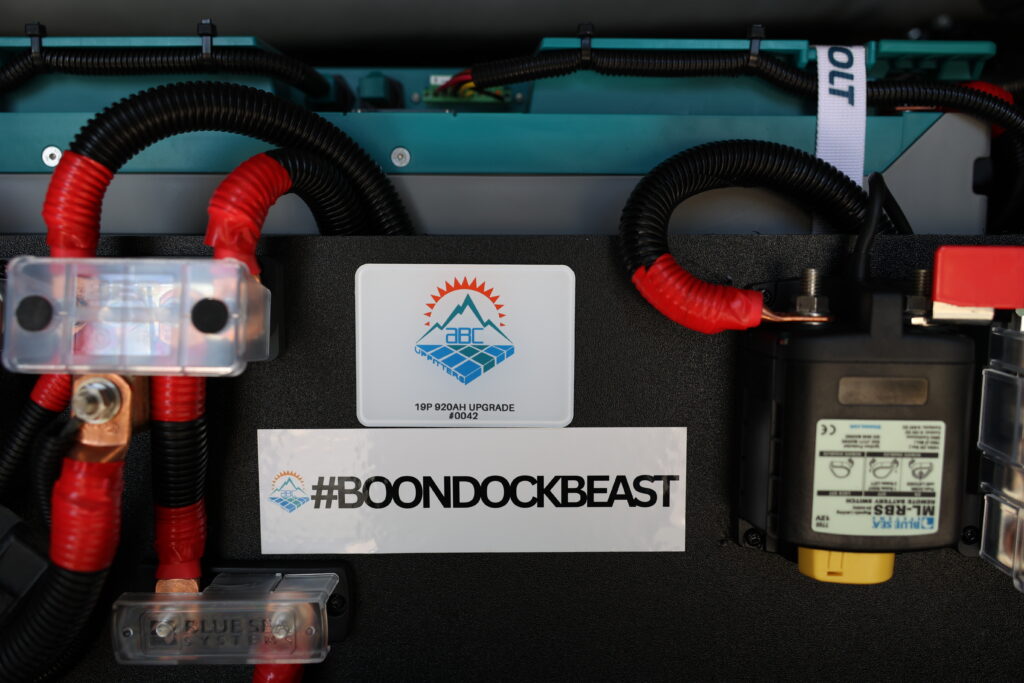Off-grid camping offers a great balance of comfort and adventure while still connecting to modern conveniences. Like traditional camping, off-grid requires careful preparation to stay self-sufficient and enjoy the experience without hookups.

Off Grid Camping vs RV Park or Campground
Off-grid camping provides an isolated and self-sufficient adventure, ideal for those seeking a deeper connection with nature and enjoying minimalism- some call it Boondocking. In contrast, camping at a campground or RV park offers comfort and convenience. This is better for those who prefer modern amenities, easy access to supplies, and a more structured experience.
Some of the main differences between off grid camping and camping in a campground are:
- Location and accessibility
- People often camp off-grid in secluded areas, such as National Forests or Bureau of Land Management (BLM) land, where there is no access to amenities.
- RV parks and campgrounds are usually located near well-developed areas, such as popular tourist destinations, and provide access to amenities.
- Many National and State parks limit generator use, which makes an off-grid system highly beneficial.
- Cost
- Off grid camping comes at a lower cost, if not free. Some areas may charge for permits or require a small fee to camp, but overall, it tends to be cheaper. The main cost is the equipment to be able to camp off grid.
- RV parks and campgrounds fees can range from $20 to $100+ per night depending on the park’s amenities. Additional costs could be amenities like laundry, cable TV, and extra parking for vehicles.
- Get a quote for your off grid camping needs.
- Amenities
- Off grid camping requires you to use your own power sources like solar panels, generators, or batteries.
- Campgrounds have hookups for all amenities like power, water, and sewage for you to use.
Taking into consideration what amenities you want when camping is important when deciding when to camp off grid or utilize a campground.

Requirements for off grid camping
Off-grid camping in a camper or RV can offer a great balance of comfort and adventure while still disconnecting you from modern conveniences. However, just like traditional off-grid camping, RV camping requires careful preparation to ensure you can be self-sufficient and enjoy the experience without relying on hookups. Here are some key requirements and considerations for off-grid camping in a camper or RV:
- Power Supply
- Solar power is an essential resource for off-grid RV camping. Consider installing an RV SOLAR PANEL SYSTEM to charge your RV batteries and power lights, fans, and small appliances without relying on external power hookups.
- Make sure your RV or camper has enough battery capacity to power your lights, fans, refrigerator, and other electronics. People often prefer lithium batteries for off-grid situations due to their efficiency and longevity.
- An inverter allows you to convert DC power from your RV batteries or solar panels into AC power to run standard appliances, such as laptops, Air Conditioners, microwaves, or TVs.
- A DC/DC converter allows you to use your vehicle motor as a charging source for your house batteries.
- Water Management
- Make sure your RV’s freshwater tank is large enough to support your needs for drinking, cooking, and showering. While solar panels will add additional power, it will not increase your water supply. If you are camping off grid, you will most likely not be near a water hook up.
- Consider installing a water filter for the freshwater supply or bringing a portable filter system (like a Sawyer or LifeStraw) if you plan to source water from rivers, lakes, or streams.
- Conservation is important
- For camping in warmer climates and hotter summer months, a good RV air conditioner can be a lifesaver. However, if you’re going off-grid, you’ll need to monitor your power usage carefully. Proper insulation will help with temperature regulation.
- Reflective window covers or insulated curtains can keep the heat in during the winter and keep your RV cool during the summer.
- Use LED lighting in your RV to minimize power consumption. These lights are efficient and provide good illumination.
- Consider efficient appliances such as high-efficiency air conditioners and refrigerators to add to battery run time.

Conclusion
In conclusion, off-grid camping in a camper or RV strikes a balance between comfort and adventure, allowing you to disconnect from modern conveniences while still enjoying some of the comforts of home. However, it requires careful planning to ensure self-sufficiency, as you’ll need to rely on alternative power sources, manage your own water supply, and handle waste disposal.
Requirements for off grid camping in an RV require proper power management (e.g., solar panels, batteries, and inverters), water conservation, and energy-efficient practices like using LED lights and maintaining proper insulation. At ABC Upfitters we can help alleviate many of these requirements with our custom-designed off-grid systems that will give you the worry-free conveniences of the campground in the serenity of an off-grid adventure!
You may also enjoy:

Leave a Reply